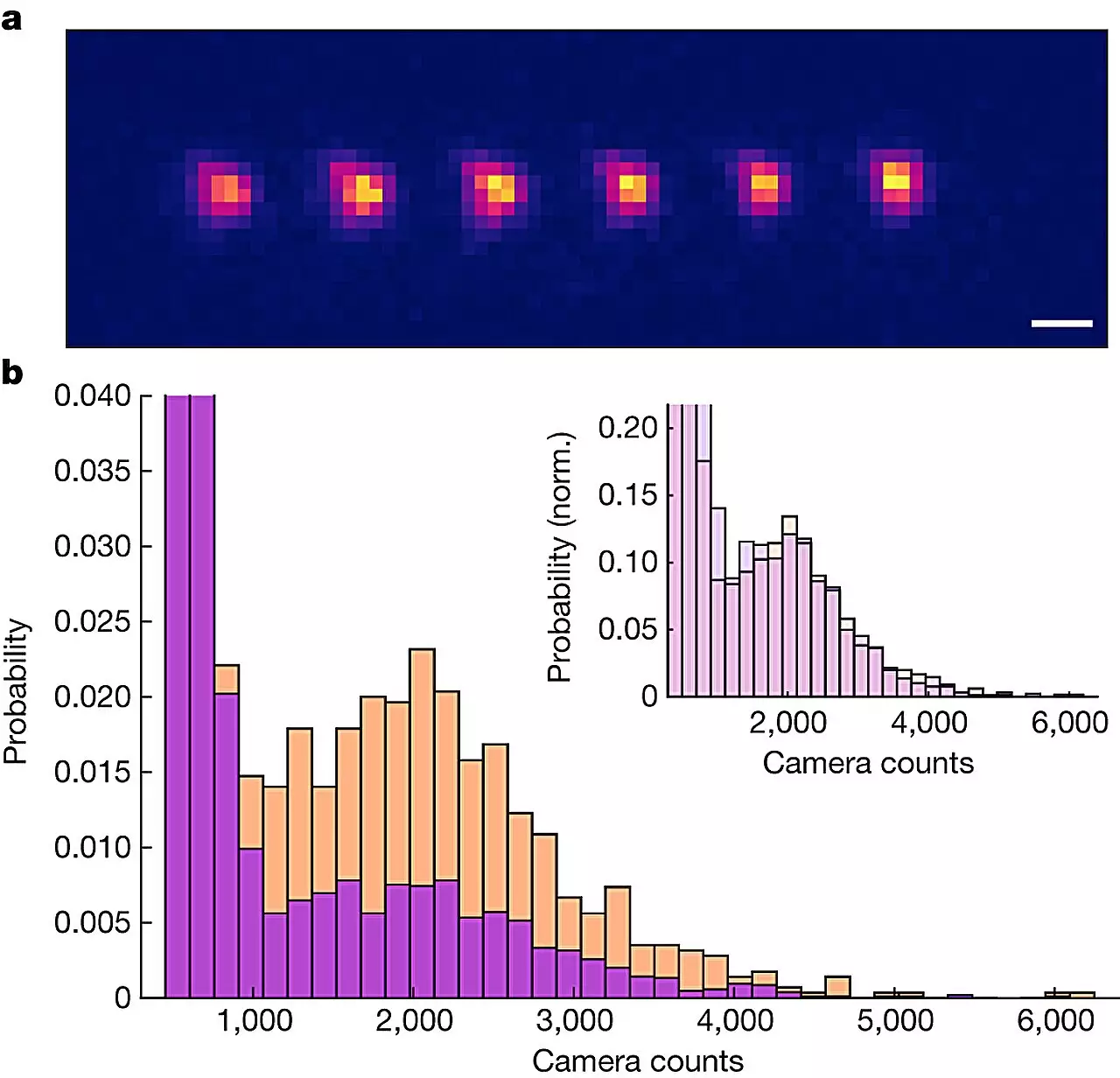A revolutionary breakthrough in the field of physics has been achieved by a team of physicists at Harvard University. They have successfully trapped individual polyatomic molecules in optical tweezer arrays for the first time. This remarkable accomplishment marks a significant advancement in molecular research and opens up a world of possibilities for future scientific endeavors.
Controlling atoms at very cold temperatures has already proved to be beneficial in the development of technologies like atomic clocks. However, extending this level of control to molecules has presented a formidable challenge due to additional factors such as rotation and vibration. While some success has been achieved with molecules consisting of only two atoms, those with more atoms have proven to be more difficult to manipulate.
In their groundbreaking research, the team at Harvard University focused on a three-atom molecule called CaOH. By isolating several of these molecules in a vacuum chamber cooled to just below 100 microkelvin, they were able to use optical tweezers to separate and manipulate individual molecules. This precise control allowed the researchers to achieve a quantum ground state for the molecules, paving the way for further investigations.
One of the key challenges faced by the research team was imaging individual molecules without destroying them. By utilizing additional lasers and carefully tuning them to avoid interference with the molecular structure, the team was able to successfully image the isolated molecules. This crucial step provided valuable insights into the effects of their manipulations on the molecules.
The significance of this research extends beyond the trapping of individual polyatomic molecules. The team’s innovative technique could potentially be applied to other three-atom molecules, thereby opening up exciting new avenues for polyatomic molecular research. This breakthrough offers a wealth of opportunities for further exploration into the behavior and properties of complex molecules, with implications for a wide range of scientific disciplines.
The achievement of trapping individual polyatomic molecules represents a monumental leap forward in the field of molecular physics. The research conducted by the team at Harvard University has not only demonstrated unprecedented levels of control over molecules but has also laid the foundation for future advancements in this area of study. With the potential for new discoveries and insights, this research has paved the way for a new era of exploration in the fascinating world of polyatomic molecular research.


Leave a Reply
You must be logged in to post a comment.